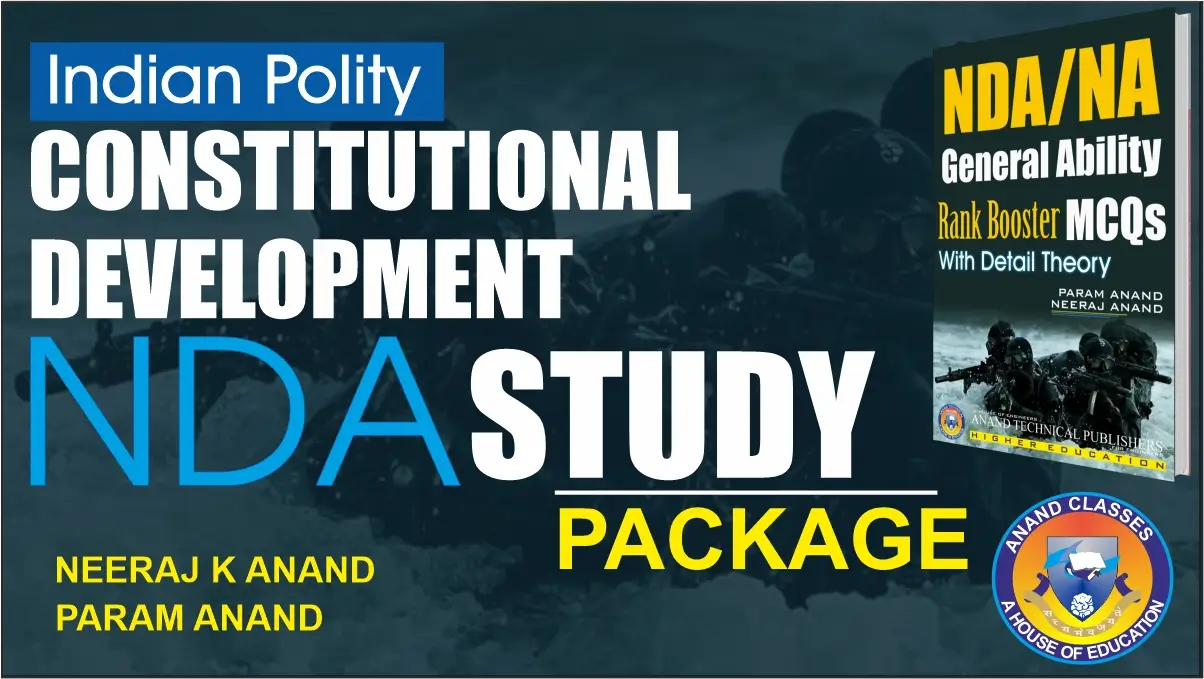Anand Classes provides detailed notes on Dual Citizenship for People of Indian Origin (PIOs) and Overseas Citizenship of India (OCI), an important topic for the NDA Exam (National Defence Academy). These notes cover the Citizenship (Amendment) Act, 2005, eligibility rules, benefits, and exceptions related to OCI in a clear and exam-oriented manner. Specially designed for NDA aspirants, this study material will help in quick revision and understanding of key constitutional concepts. Click the print button to download NDA study material and notes.
Dual Citizenship for People of Indian Origin (PIOs)
Introduction
- In December 2003, a new law was passed that permitted People of Indian Origin (PIOs) residing in 16 countries to have dual citizenship status.
- The objective was to enable them to participate in India’s economic activities and also acquire real estate.
Countries Included:
Australia, Canada, Finland, France, Greece, Ireland, Israel, Italy, the Netherlands, New Zealand, Portugal, Cyprus, Sweden, Switzerland, United Kingdom, and United States.
Overseas Citizenship of India (OCI)
- In January 2006, the Indian government introduced the concept of Overseas Citizenship of India (OCI), which provides a limited form of dual citizenship.
- A Citizenship (Amendment) Ordinance, 2005 was promulgated in June 2005, followed by an Act in August 2005.
- This amendment empowers the Central Government to register any eligible person as an Overseas Citizen of India (OCI).
Eligibility for Overseas Citizenship of India (OCI)
A person of full age and capacity may be registered as an OCI if he/she:
- Was a citizen of India at the time of, or at any time after, the commencement of the Constitution of India on 26th January 1950.
- Was eligible to become a citizen of India at the time of commencement of the Constitution.
- Belonged to a territory that became a part of India after 15th August 1947.
- Is a child or grandchild of such a citizen.
- Is a minor child of a person mentioned in the above categories.
Exceptions
- No person who is or has ever been a citizen of Pakistan or Bangladesh shall be eligible for registration as an OCI.
FAQs on Dual Citizenship and Overseas Citizenship of India (OCI)
Q1. What is dual citizenship for People of Indian Origin (PIOs)?
Answer:
In December 2003, the Indian government passed a law permitting PIOs residing in 16 countries (like USA, UK, Canada, Australia, etc.) to enjoy dual citizenship status, allowing them to participate in India’s economic activities and own property.
Q2. What is Overseas Citizenship of India (OCI)?
Answer:
The Overseas Citizenship of India (OCI), introduced in January 2006, is a limited form of dual citizenship for eligible People of Indian Origin. It was established through the Citizenship (Amendment) Act, 2005.
Q3. Who is eligible for Overseas Citizenship of India (OCI)?
Answer:
A person of full age and capacity is eligible for OCI if they:
- Were a citizen of India at any time after 26th January 1950.
- Were eligible to become an Indian citizen at the commencement of the Constitution.
- Belonged to a territory that became part of India after 15th August 1947.
- Are a child or grandchild of such a citizen.
- Are a minor child of an eligible person.
Q4. Which countries’ citizens were initially allowed dual citizenship with India?
Answer:
Citizens of 16 countries including USA, UK, Canada, Australia, France, Italy, New Zealand, Switzerland, Israel, Greece, Ireland, Finland, Netherlands, Portugal, Cyprus, and Sweden were allowed dual citizenship status.
Q5. What are the benefits of OCI for People of Indian Origin?
Answer:
- Permission to participate in economic activities in India.
- Ability to purchase and own property.
- Long-term visa-free entry to India.
- Can enjoy many rights similar to Non-Resident Indians (NRIs).
Q6. Who is not eligible for OCI?
Answer:
- Any person who is or has been a citizen of Pakistan or Bangladesh is not eligible for registration as an Overseas Citizen of India.
Q7. Is OCI the same as full Indian citizenship?
Answer:
No ❌.
OCI is only a limited form of dual citizenship. It does not provide political rights such as the right to vote, hold constitutional offices, or contest in elections.
📚 Buy Study Material & Join Our Coaching
For premium study materials specially designed for NDA Exam, visit our official study material portal:
👉 https://publishers.anandclasses.co.in/
For JEE/NEET Notes : Visit https://anandclasses.in/
To enroll in our offline or online coaching programs, visit our coaching center website:
👉 https://anandclasses.co.in/
📞 Call us directly at: +91-94631-38669
💬 WhatsApp Us Instantly
Need quick assistance or want to inquire about classes and materials?
📲 Click below to chat instantly on WhatsApp:
👉 Chat on WhatsApp
🎥 Watch Video Lectures
Get access to high-quality video lessons, concept explainers, and revision tips by subscribing to our official YouTube channel:
👉 Neeraj Anand Classes – YouTube Channel
